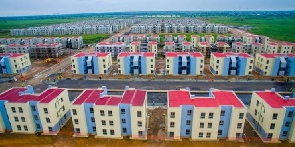As Ghana heads to the 2024 general elections in December, issues of youth development have become a critical focus for both the incumbent New Patriotic Party (NPP) and the main opposition National Democratic Congress (NDC), as well as the other smaller political parties and independent presidential candidates. The focus of this piece is on the two main political parties whose probability of emerging victorious is incontestable.
The debacle of youth unemployment has largely been touted by analysts as a national security issues. With youth unemployment and skills development on the national agenda, both the NPP and NDC have attached critical importance to it and outlined ambitious strategies in their manifestos to tackle the menace. But which party’s proposals are more SMART—Specific, Measurable, Achievable, Relevant, and Time-bound? The ensuing paragraphs will break down how the manifestos seek to prepare Ghana’s youth for a brighter future.
Specificity: Clear and Targeted Goals for Youth
Both political party manifestos have outlined concrete policy ideas that aim to address youth empowerment, however with their areas of focus varying significantly.
The NPP offers a clear strategy for preparing youth for the Fourth Industrial Revolution, targeting digital economy jobs through the creation of a Digital Economy and Innovation Hubs across the country. The hubs will undertake training programmes in Artificial Intelligence (AI), Blockchain, robotics, and cloud computing to equip the youth with future-ready skills. In addition, the party intends to expand Technical and Vocational Education and Training (TVET) programmes in sectors such as green energy, aviation services, and professional services. These actions in the manifesto are highly specific and offer detailed pathways for youth engagement in emerging industries
.
On the other hand, the NDC has outlined specific policy interventions such as the 24-Hour Economy Policy, aiming to increase employment by creating work shifts for the same job. This policy is designed to tackle unemployment across the manufacturing, healthcare, and transportation sectors in order to expand job opportunities in the short-term. Again, the NDC’s plan to establish Youth Innovation and Industrial Parks (YIIP) and the National Employment Trust intend to spur entrepreneurship and job creation, particularly in agriculture and local industries.
Verdict: Both political party manifesto initiatives are specific, but the NPP’s focus on creating high-tech jobs and digital skills development stands out for its forward-looking and global approach, while the NDC’s focus is on immediate job creation through labour shifts and industrial parks.
Measurable: Defining Success with Clear Metrics
Measurable outcomes are critical for tracking the success of policies. The NPP and NDC manifestos provide quantifiable actions, though the manifesto of the NPP is more consistent with numbers.
The NPP has committed to creating high-tech jobs through digital transformation initiatives. For instance, the party’s TVET expansion approach seeks to train 500,000 students annually in technical skills for emerging industries like agribusiness and public infrastructure maintenance. Also, the NPP’s commitment to developing a Digital Economy Hub has measurable targets for building digital infrastructure and increasing the employability of the youth in high-tech sectors. However, specific job numbers for these digital industries are less clearly delineated.
On the other hand, the NDC outlined in their manifesto some ambitious plans with fewer quantifiable targets. For instance, the 24-Hour Economy Policy is expected to create thousands of new jobs, but no exact number of jobs is provided. Again, the Youth Innovation and Industrial Parks (YIIP) will serve as a platform for youth-led businesses, but the manifesto lacks specific numbers on how many youth-led startups or entrepreneurs will benefit from this initiative.
Verdict:
Achievable: Can These Ambitions Be Realized?
The feasibility of the intended policies by the two major political parties is another critical factor worth considering. Both manifestos contain achievable, albeit ambitious, goals.
The NPP’s emphasis on digital transformation is grounded in Ghana’s growing interest in technology and innovation. This makes the party’s drive to create high-tech jobs and expand TVET realistic and in alignment with global economic trends. The plan to train 500,000 youth in technical and vocational skills per year is an achievable target, given the ongoing investment in education and skills development by the government.
The NDC’s 24-Hour Economy Policy, while innovative, may face significant challenges in implementation across multiple sectors. The logistics of organizing three shifts for the same job, especially in industries such as manufacturing, would require extensive infrastructure and coordination. However, the National Employment Trust and Youth Innovation Parks are achievable, provided they receive sufficient public and private sector investment.
Verdict: Both parties propose achievable policy interventions, but the NPP’s focus on digital skills and technology-based industries is more grounded in current trends, while the NDC’s 24-Hour Economy is ambitious but complex to implement.
Relevant: Addressing Ghana’s Current and Future Needs
Relevance is key to ensuring that the intended policy initiatives of the NPP and NDC meet the current and future needs of Ghanaian youth.
The manifesto content of the NPP is highly relevant in view of the drive to prepare the youth for a globalized digital economy. The focus on high-tech sectors such as AI, blockchain, and robotics will position Ghanaian youth to compete on a global scale. Additionally, the NPP’s emphasis on TVET will ensure that young people are equipped with practical, technical skills that are relevant to Ghana’s current and future economic needs.
The NDC’s focus on industrial revitalization and local entrepreneurship is also relevant, particularly in addressing youth unemployment in the short term. The party’s emphasis on agriculture and agro-processing resonates with Ghana’s natural resources and the need to expand local industries. This notwithstanding, the NDC manifesto lacks the global focus that the NPP manifesto highlights, which is crucial for future competitiveness of Ghanaian youth in the global economy.
Verdict: Both manifestos are relevant to Ghana’s context, but the NPP’s global focus on digital and high-tech sectors provides a more forward-thinking approach to youth development, while the NDC’s focus on local industries is more relevant in bridging immediate employment gaps.
Time-Bound: Setting Deadlines for Accountability
Goals and objectives that are time-bound ensure that policies are implemented within a clear timeframe. This allows for progress tracking and accountability.
The NPP sets some time-bound targets, especially in job creation through TVET programmes. Their goal to train 500,000 students per year in technical and vocational skills is a clear, time-bound initiative. However, their larger digital transformation goals, such as the development of the Digital Economy Hub, lack specific timelines, which weakens the manifesto’s overall time-bound clarity.
Similarly, the NDC manifesto actions are vague in terms of timelines. The manifesto outlines broad implementation frameworks but lacks specific timelines for policy interventions such as the 24-Hour Economy Policy and the Youth Innovation and Industrial Parks. While they aim to begin rolling out these initiatives in the first few years of governance, more precise timelines are needed.
Verdict: Both manifestos could benefit from setting clear timelines for implementation of the policy initiatives. While the NPP’s TVET expansion is a strong time-bound initiative, their broader digital goals lack specificity, and the NDC’s ambitious programmes are not clearly time-bound.
Final Verdict: Which Manifesto is SMARTer for Ghana’s Youth?
When evaluated through the SMART lens, the NPP comes out stronger in terms of specificity, measurability, achievability, and relevance. The party’s emphasis on high-tech jobs, digital transformation, and practical skills development makes their plan more aligned with the future needs of Ghanaian youth. Also the intention of the NPP to train 500,000 youth annually in TVET to feed emerging sectors such as green energy and aviation show a concrete, actionable plan to prepare the youth for both local and global markets.
The NDC, while innovative with its 24-Hour Economy Policy and emphasizes industrial revitalization, lacks the same level of measurability and specific timelines. However, the party’s focus on job creation through local industries and agro-processing is essential in addressing youth unemployment in the short term, particularly in rural areas. Their approach may appeal more to youth seeking immediate employment opportunities rather than those looking to future-proof their careers through technology-driven industries.
Ultimately, the NPP’s long-term vision for global competitiveness in the Fourth Industrial Revolution provides a SMARTer and more future-focused strategy, while the NDC’s immediate job creation policies are more focused on addressing the current economic needs of the country. Both manifestos have their strengths, but the NPP offers a clearer path toward long-term, sustainable youth development in a global context.
Author: Muhammed A.Yakubu (africansaphari@gmail.com)
Opinions of Thursday, 10 October 2024
Columnist: Muhammed A.Yakubu



















